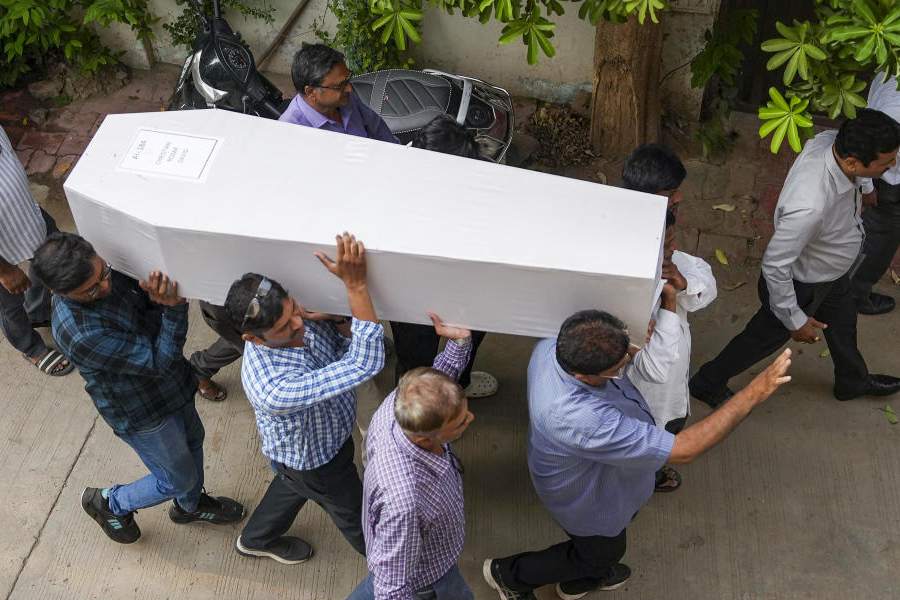 |
| Comaneci still lures youngsters to the sport |
Deva (Romania): In the shadow of a ruined Transylvanian castle a dozen teenage girls practice their tumbles and somersaults at Romania’s gymnastics camp.
“I hope to have the best team in Athens,” coach Octavian Belu said. “This team has no champions and this is their motivation — now it’s your time.”
Children are selected to join the year-round school when they are nine or 10. Every one of them is nurtured by dreams of emulating Nadia Comaneci who won three gold medals and scored the world’s first perfect 10 at the 1976 Olympics, aged 16.
“Nadia changed the sport. By defeating 20-year-olds she made it a sport for children,” Belu said. “Now we start training gymnasts at six or seven, maybe in China they start at four.”
Andreea Munteanu is 15 and has left her family behind in the Black Sea port of Constanta. The world championship silver medallist is confident of repeating Comaneci’s success in August’s Olympics.
“When I was four I saw gymnastics on TV and I started jumping on the bed. That’s how it all started,” said Munteanu. “I’m going to win the gold in Athens.”
Comaneci’s status as a national heroine lured many Romanian children to the sport, especially from needy families hoping success would improve their lives during the harsh years of Nicolae Ceausescu’s communist regime.
After Romania emerged from decades of totalitarianism, children had more opportunities and their families were more reluctant to subject them to the hardships and deprivations needed to achieve gymnastics success.
The country’s best trainers fled to high-paying jobs in the west after communism collapsed in 1989 and the sport suffered a slump in the 1990s.
With the state once again pumping money into the federation, honouring champions with big-money prizes and life-long financial security, interest has recovered.
“A lot of five- or six-year-old girls from all over Romania come to gymnastics halls asking to start training as their families’ only solution to poverty,” said Adrian Stoica, general secretary of the Romanian Gymnastics Federation.
Romania were Olympic women’s team champions in 2000 and Andreea Raducan, 16, charmed the crowds with her performances and child-like spontaneity, winning individual gold.
However, a pill given to her by the team doctor led to the International Olympic Committee (IOC) taking back her medal after she tested positive for pseudoephedrine.
More crises followed. Former Romanian Olympic medallists posed nude for money in Japan. They were banned by their federation and risked having the Romanian team banned from international competitions.
Then former Romanian champions accused their coaches of abuse, falsifying their ages on documents and giving them medical substances that might have damaged their health.
The coaches vehemently denied the charges and have demanded that gymnasts sign contracts promising to make any complaints during their active careers and not after they retire.
Belu, who runs strict training sessions, said his aim was not to make the athletes comfortable but to make them champions.
“Every family that puts their child here knows this is hard work. But you must talk, have a special relationship with each child. She must work because she trusts you.”
The athletes train for about six hours a day, including weekends, in the sprawling compound grounds and spend about four hours a day at a special school.
They have privileges other Romanian children only dream of — jacuzzis, internet access, maids to pick up after them and 120 euros a month pocket money, about the average monthly salary in Romania.
They must, however, stick to a strict programme — dating and discos are off limits — and careers are increasingly short with many gymnasts now retiring when just 19.
Silvia Stroescu, 18, said she wanted to win a medal in Athens before she stopped competing in about 12 months’ time. She was unsure what she would do next.
“I don’t want to think about my life after gymnastics,” she said.











